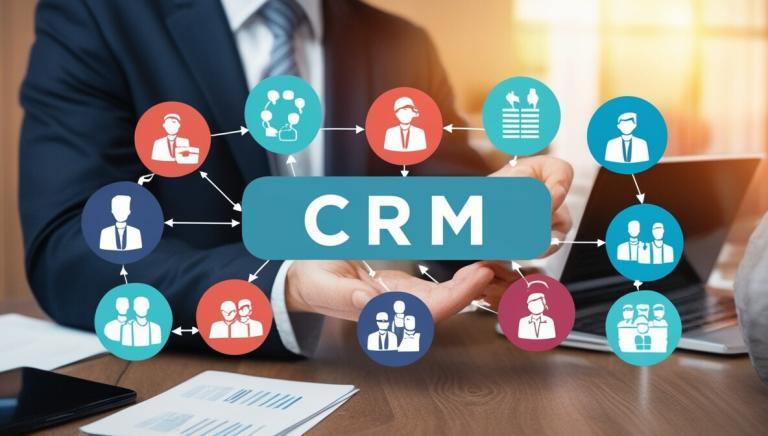Welcome to howtokh.com, your go-to platform for insightful articles about technology, business, health, travel, and more. Today, we’re diving into CRM systems, a vital tool for modern businesses. Read on to learn what CRM is. Discover how it works. Understand why it’s so essential for success in today’s competitive world.
Table of Contents
What is a CRM System?
CRM (Customer Relationship Management) systems are software tools. They help businesses manage, track, and improve their interactions with current customers. They also assist with potential customers. A CRM acts as a central hub where businesses store customer information, track communication history, and manage sales pipelines.
Why Do We Use CRM Systems?
CRM systems are essential for businesses because they:
- Enhance Customer Relationships: Centralize customer data, making interactions personalized and efficient.
- Improve Sales Management: Track leads, monitor deals, and predict future sales trends.
- Increase Productivity: Automate repetitive tasks like sending follow-up emails or scheduling calls.
- Provide Insights: Generate detailed reports and analytics for better decision-making.
- Boost Customer Retention: Help identify and address customer needs proactively.

How Does a CRM System Work?
CRM systems operate by collecting and organizing customer-related data from various touchpoints, such as:
- Data Capture: Pulling information from emails, social media, phone calls, and websites.
- Centralized Database: Storing all customer data in one place for easy access.
- Automation: Streamlining processes like lead assignment, email campaigns, and customer support ticketing.
- Analytics and Reporting: Offering insights into customer behavior, sales performance, and marketing effectiveness.
- Integration: Connecting with other tools, such as email platforms, e-commerce software, or social media channels.
The system is used by sales, marketing, and support teams to ensure cohesive communication and efficient management of customer relationships.
Example of a CRM System
A well-known example is Salesforce, a cloud-based CRM platform. Here’s how a business might use Salesforce:
- Lead Management: Automatically assign new leads to sales reps.
- Customer Interaction Tracking: Record phone calls, emails, and meetings with each customer.
- Marketing Campaigns: Automate email campaigns targeted at specific customer segments.
- Analytics: Generate reports on customer demographics, sales trends, and campaign performance.
A small business can use Salesforce to track a lead’s journey. This includes the initial inquiry to the closing of a deal. This ensures no opportunities are missed.

CRM systems are indispensable tools for businesses aiming to foster strong customer relationships and drive growth. By understanding CRM’s capabilities, you can unlock new opportunities for efficiency and success. Explore more about business tools and strategies on howtokh.com, and stay ahead in the ever-evolving world of technology and management.
When We Use a CRM System
- Centralized Customer Data Management
- A CRM system stores customer information (contacts, purchase history, communication logs) in a central database accessible across the network.
- Sales and Marketing Management
- Sales teams use CRM to track leads, opportunities, and campaigns. Marketing teams analyze customer data to run targeted campaigns.
- Customer Support and Service
- Customer service teams access the CRM to resolve tickets, manage support requests, and track customer interactions efficiently.
- Collaboration Across Departments
- Employees in sales, marketing, and support can share customer information through the network, improving communication and collaboration.
- Remote Access and Mobility
- Cloud-based CRMs allow employees to access customer data over the internet from any location or device.
- Data Analytics and Reporting
- CRM systems generate reports and analytics over the network. These help managers make data-driven decisions about sales performance, customer behavior, and trends.
A CRM system is used in a network whenever an organization needs to centralize customer information. It is also useful for managing and sharing this data across teams. It helps improve sales, marketing, customer service, and overall business efficiency.


3 Comments
vbuw2e
ohku8d
ml3o95